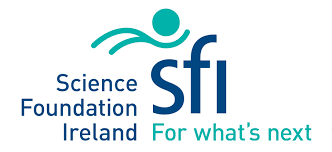- Home
- Semester and Timetable Information
- Study Physics
- Our Research
- Our People
- Careers and Alumni
- Seminars, News and Events
- Outreach and School Resources
- About the School
- What is Physics
- The Crawford Observatory
- Frequently Asked Questions
- UCC Futures Quantum & Photonics
- Supports
News
SFI Future Frontiers Award

Ultra-sensitive cavity-enhanced trace gas detection for new atmospheric science and socio-economic impacts
The SFI Frontiers for the Future Programme supports the development of world class research capability and human capital in the areas of science, technology, engineering and mathematics (STEM) that demonstrably support and underpin enterprise competitiveness and societal development in Ireland.
Huge congratulations to Albert A. Ruth and John Wenger, University College Cork in securing an SFI Future Frontiers award. The project started on 1st December 2021.
Free radicals are not only harmful for humans, but they are also the driving forces behind the chemistry of the natural and anthropogenically polluted atmosphere. Owing to their high reactivity, even minute concentrations can significantly affect air quality and the evolution of atmospheric processes. Hence there is a need to further improve technologies, such as cavity enhanced absorption spectroscopy, to enable the detection of trace species at the lowest possible level.
This project will focus on the implementation of new ideas to modify and optimize cavity-enhanced optical methodologies. The research will involve the development of frequency comb heterodyne spectroscopy in collaboration with Pilot Photonics Ltd, and the construction of cutting-edge cavity setups for the detection of multiple radical species. The latter will be employed on a commercial aircraft to map trace species in the upper troposphere as part of an international programme on global monitoring (IAGOS-CARIBIC). Through this development, the new Irish Atmospheric Simulation Chamber at UCC will gain world-unique capabilities for research into atmospheric chemistry. Scientific investigations will focus on radical chemistry and its influence on volatile-organic-compound oxidation and secondary organic aerosol formation. The project consolidates new partnerships and European network involvement and offers great outreach and commercial opportunities.
Andy Ruth stated that “We will develop new optical technologies that will be used at the national Irish Atmospheric Simulation Chamber in UCC and in field experiments to measure and quantify the concentrations of specific radicals in the atmosphere. Through the simulation of daytime and night time scenarios new insights into the role of these highly reactive trace gas species on atmospheric composition and dynamics will be established, together with their impact on air quality and climate.”
